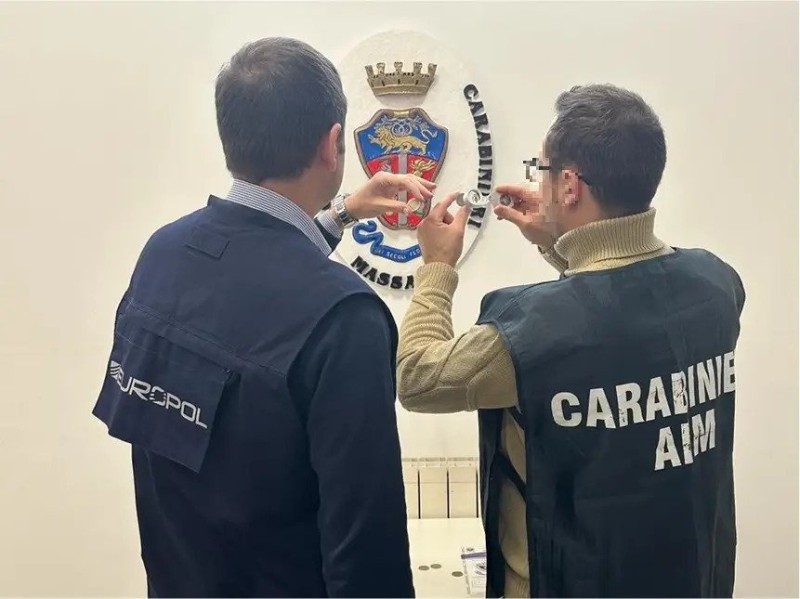The investigation began on April 10, 2021, when Italian Carabinieri apprehended two people in possession of 668 fake 2 euro coins.
Investigations revealed that the counterfeit coins were distributed throughout several European countries, mainly in France, but also in Germany, Lithuania, Portugal, Spain, and Switzerland. Authorities conducted 12 searches at various locations in Italy, specifically in the cities of Taranto, Rome, Matera, and Perugia.
Thanks to cryptanalysis blockchain transactions — with blockchain being a record-keeping system challenging to hack — law enforcement discovered that the syndicate operated through a "vendor" responsible for a channel on an instant messaging app. This "vendor" was selling the counterfeit euro coins for half of their value, accepting payment in cryptocurrency.
The remaining members of the syndicate were responsible for shipping the fake coins to buyers via private international postal services. Investigators tracked down 60 parcels of fake 2 euro coins, weighing 100,000 kg (approximately 220,462.26 lbs) and valued at 102,000 euros (US$110,121.75). These parcels were destined for several countries, including Italy, France, and Switzerland.
Law enforcement also seized 107,000 bitcoins, along with forged coins and a section of the coin press machine used for manufacturing.
"The global acceptance of the euro as a stable currency with low rates of inflation makes it an attractive currency for counterfeiters," said Europol.
Counterfeiters use special equipment and printing technology that sometimes makes it almost impossible to distinguish real banknotes and coins from fake ones. According to Europol, "the 20 euro ($ 21.59) banknote remains the most popular denomination for counterfeiters, followed by the 50 euro ($ 53.98)."
Europe is not the only region affected by forged money fraud. In June 2023, Brazilian police dismantled a criminal syndicate that counterfeited "approximately half a ton of money," with a value of more than $700,000.
Today's technology, relatively cheap and easily accessible, creates a fertile ground for counterfeiters. When currency is counterfeited, it has an impact on each individual through inflation because it reduces the value of the genuine currency, leading to monetary losses for companies and individuals, as stated in an Interpol report.
"There is also a proven connection with organized crime networks who use counterfeit money to finance illegal activities such as trafficking in human beings and drugs, and even terrorism," the report says.
Furthermore, Interpol highlighted that "currency counterfeiting is a problem that cannot be dealt with by law enforcement alone" but must involve the collaboration of "monetary issuing authorities, central banks, and the security printing industry."



